NSW’s top animal trainers reveal secrets behind success
The state’s leading trainers and animal behaviourists have shared insights into their jobs – including how to get the best results out of your pets. Take a look at some of the best in the business.
Central Sydney
Don't miss out on the headlines from Central Sydney. Followed categories will be added to My News.
They’re the talented trainers who make the magic happen with the creatures in their care.
Following one of the country’s biggest years in animal adoption, the state’s leading trainers and animal behaviourists have shared insights into their industry and offered up some top tips to address animal behavioural issues.
Many owners turn to trainers to help address specific issues such as aggression in animals or separation anxiety.
Some have also adopted animals from shelters from abusive backgrounds, requiring support for specific skills and issues including trust and territorial aggression.
Here is a guide to some of the best trainers in the business:
DOMINEQUE HONE – THE DOG BRIGADE
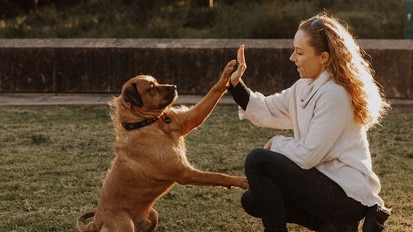
Domineque Hone is a dog training and behaviour modification specialist at The Dog Brigade, based in Sydney.
I have been working in the animal industry since 2006 where I started volunteering in an animal shelter in Dublin while on a working holiday. Volunteering soon became a full time job. This is where I found my passion for animals and understanding them. My inspiration was an American Bulldog I named Ivan. He was huge, and scary looking, but a very sensitive boy. The training methods I was taught were very aversive and Ivan eventually shut down. This was when a light bulb went off for me, there had to be a better way. After returning to Australia, I adopted my boy Archie from Blacktown pound who was human reactive. He soon became my greatest teacher. Having a dog that displays reactive behaviour can be extremely difficult to live with. Learning how to understand them, building trust with them and advocating for them is something that I have learned with Archie. He would have to be my toughest case as I had to learn to navigate my day to day life with him and his needs. In recent years, the Covid-19 pandemic has had a huge impact on dogs and their behaviour as that sudden change in their environment was very confusing for them, this was evident in behaviours caregivers started to see such as barking and resource guarding. My top tip for people working with dogs who are struggling is make sure you seek professional help from a qualified trainer as soon as you notice changes in your dog’s behaviour. Getting the right advice from the start will help both you and your dog succeed.
REGINA HALL-JONES – WHAT’S UP PUSSYCAT
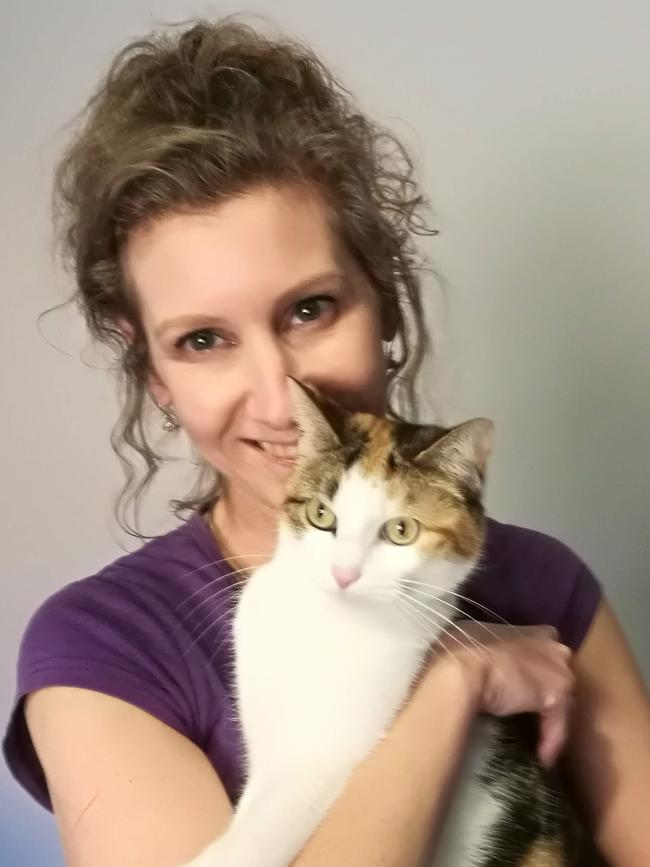
Regina Hall-Jones is cat behaviourist at What’s Up Pussycat.
I love cats and it has always upset me to hear of cats being rehomed, surrendered or even euthanised for behaviours that I believe could be resolved or managed. There is so much conflicting and incorrect information online regarding cat behaviour and what to do. Unfortunately, some methods I’ve seen can actually make issues worse. All cats are individuals and respond to things differently. In order to help a cat with their issue, all aspects of the cat must be taken into consideration – from genetics, breed, temperament, background (if known) to everything within their current environment. It is not one size fits all. Sadly, many cats are rehomed or euthanised due to aggression and litter tray issues. My most challenging cases were helping two separate clients with these issues. After veterinarian checks to rule out any underlying health issues, I spoke to clients in detail to be able to assess the cats, understand the situation and look at possible triggers/causes. I then drafted treatment plans and supported my clients throughout the process. During the Covid-19 pandemic, some clients found it difficult to work from home due to their cat’s attention-seeking behaviours. Then, when people started going back into offices, some cats found the change of routine challenging with their humans suddenly gone all day. As cats are all individuals, I tailor the treatment plan to suit the needs of each cat and client. Although, if you adopt a kitten, I recommend adopting two, ideally littermates or already bonded, so they have each other for company. Cats don’t do things out of spite – in their mind there is a valid reason for the behaviour. Usually, the sooner they get help, the quicker and easier the issue is to resolve.
TODD MORRIS – BARK BUSTERS
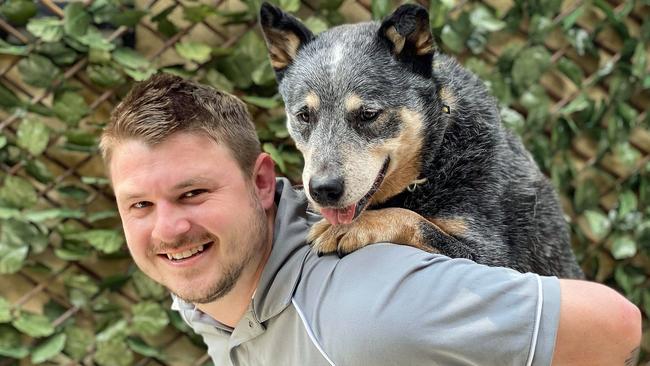
Todd Morris, based in the Illawarra region, is trainer at Bark Busters.
Bark Busters Home Dog Training was born out of necessity over 33 years ago, when our co-founder Sylvia Wilson was managing an RSPCA shelter on the south coast of Australia. In her 10 years there, she saw first-hand how many people struggled with their dog’s behaviour and feeling they had no alternative but to surrender their pet to the shelter. People just need to learn how to understand their dog and communicate in a way that the dog understands. We use a unique ‘dog friendly’ system of training that uses ‘canine communication’ using no force, fear or pain and in the dog’s own environment. The need for our services has increased dramatically over the years and especially during Covid lockdowns when the demand for puppies and dogs dramatically increased. Also, some existing dog owners got to see how badly behaved their dogs were while spending more time with them. Then issues arose when the lockdown ended and the dogs were left home alone, with barking, separation anxiety and destructive behaviour some of the biggest issues. Dogs are now a big part of society and more than ever need to be well mannered.
IAN SHIVERS – BONDI BEHAVIOURIST
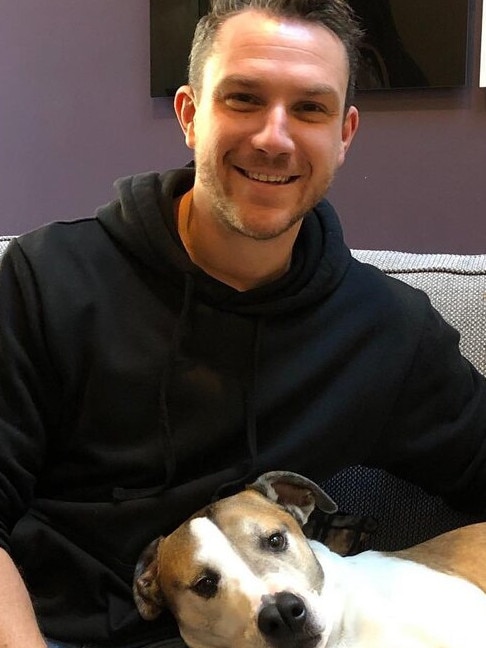
Ian Shivers is the founder of Bondi Behaviourist and co-founder of Canine Caregivers.
I started this business like so many in our industry, I discovered a passion for training dogs when my own dog came up against challenges and so wanted to help others that were in a similar position to the one I had been in the past. No two cases are the same but the most difficult cases we work with are the ones in which the dog is really struggling mentally and emotionally (and their behaviour reflects this) and the people on the other end of the leash are also exhausted mentally and emotionally. The past two years have brought about changes, the rate in which people’s lives have changed and the struggles that we have all been through have brought up similar challenges for our dogs. So many of these dogs have been going through adolescence, the most challenging stage of any dog’s life, during that period. What we are trying to encourage all caregivers to do is set realistic expectations of their dogs, set them up to succeed, and build healthy communication patterns. We want caregivers to be accountable for where they take their dogs, who they introduce them to and look at the emotional and mental health of their dog, not just the physical and avoid using physical correction. Finally, we want people to treat their dogs with care, compassion and empathy and get professional help from someone that does not use outdated methods like dominance and correction.
MELINA GRIN – PET NURTURE
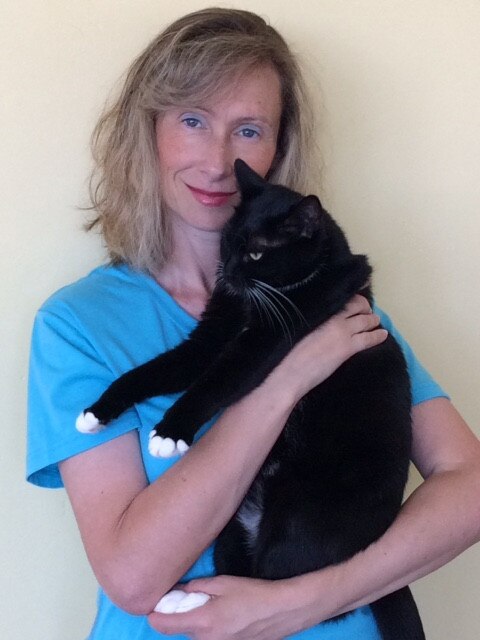
Melina Grin is a behaviour and training specialist at Pet Nurture, based in Sydney’s eastern suburbs.
My lifelong love of pets led me initially to consider a career in veterinary science however, it was not something I was cut out for. Life took me in a quite different direction for several years when I adopted two kittens after losing my senior cat. Their behavioural and health issues led me to learn new skills to manage them, then I created her animal wellness centre – Pet Nurture to share my knowledge and expertise with other pet parents. The most challenging behaviour cases usually involve either toileting outside the litter tray, human directed aggression or inter-cat aggression in multi-cat homes. Treatment usually involves owner education regarding feline body language plus behaviour, environmental mitigation, behavioural modification with the use of positive reinforcement including nutritional supplementation. Many pet owners express worries regarding potential separation anxiety while returning to full time work, however most cats have adopted better than dogs. Education is vital in preventing unwanted behaviours and to address this we created in-home and live online ‘kitten kindergarten’ classes to cover everything from cat communication and training for general cues and behavioural support which is lots of fun for both owner and cat. My main tip for pet owners who are struggling with pet behavioural issues is to consult a vet or an animal behaviourist rather than ask for advice from a friend or Facebook to reduce getting incorrect advice and potentially damaging the human-pet relationship in the long term.
MARK EHRMAN – CANINE COUNSELLING BY MARK
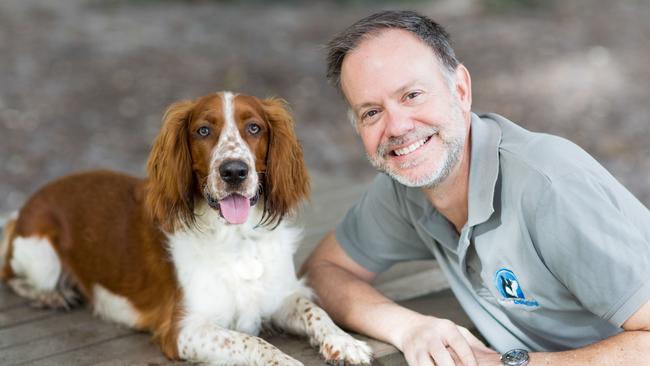
Mark Ehrman is a certified dog trainer at Canine Counselling by Mark.
Like most dog trainers, I got into dog training as a result of owning a dog with behaviour problems, and then learning how to deal with the situation. By the time I finished my certificate in dog training and behaviour, I was committed to changing careers to pursue my passion of helping improve the relationship between dogs and owners. I started out taking easy cases at first, and as I studied and learned more, and got more experience, I began to get into more complex behaviour, including aggression cases. I have had several complex cases recently involving dog bites on children. These were all cases of the family dog biting a child in the home. These can be difficult cases, because of all the emotions involved, and sometimes difficult decisions that have to be made. My role is to support the family, give the dog’s perspective, and help navigate a solution that keeps everyone safe while we implement management and training. Aggression cases are especially tricky, because of the severe consequences involved. Modern dog training has evolved dramatically and I have two big challenges as a professional dog trainer now. The first is overcoming the outdated concept of pack leader, dominance, and ‘being the alpha’. Science has proven this concept is inaccurate, and not the best way to train dogs. But many trainers and dog owners still cling to this paradigm, and are reluctant to move beyond that. My second challenge is the recent popularity of ‘training’ videos on YouTube and TikTok. These influencers and content creators are setting unrealistic expectations, and making promises that are impossible to keep. My advice for pet owners who are struggling with pet behavioural issues is realising that every situation is unique. Often when I give an alternate explanation for dog behaviour that isn’t based on pack leader and dominance, owners say “wow, that makes so much sense, and I can see why things haven’t been getting better.” After a change of perspective, we often see behaviour improve quickly.
LEE STONE – PARROT LIFE BEHAVIOUR AND TRAINING
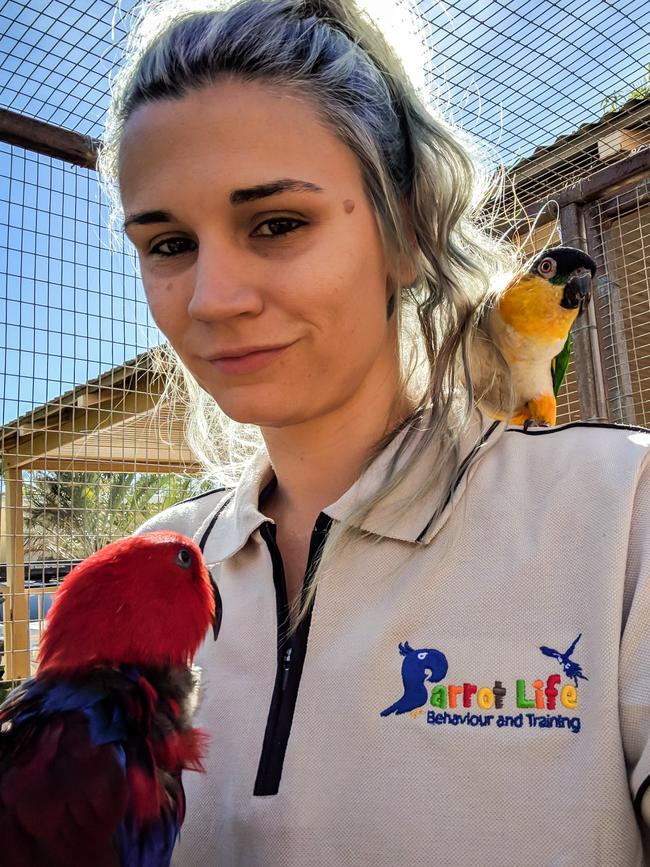
Lee Stone is the operations manager at Parrot Life Behaviour and Training.
Parrot Life Behaviour and Training was founded 2013 to provide parrot guardians assistance with their companion parrots. At the time few others were providing services to companion parrot owners and there was a real need within the parrot community. Our role as parrot behaviour consultants is to use the science of applied behaviour analysis to assess the behaviour of the parrot we are working with, identify the client’s goals and then work with the client to develop a training and/or behaviour modification plan that is customised to their individual situation. We then coach them through implementing the plan with their bird. Our most challenging cases are often those that involve ‘feather destructive behaviour’. This issue is often multifaceted, involving not only behavioural factors but also medical and environmental components. We often work closely with avian veterinarians in these cases to ensure that all possible contributing aspects are addressed. We saw a significant increase in cases involving screaming / excessive vocalisations during and after the Covid-19 pandemic. In some cases, these parrots were likely already engaging in this behaviour, and the family spending more time at home made the issues more evident. In other cases, we find that the parrot/s have become so conditioned to the family being home all of the time that the sudden shift back to a more ‘normal’ structure where families are out all day has led to stress and separation distress. In response to this we put together and released a webinar on the topic of resolving excessive screaming which is available on our website. Our top tip for parrot owners who may be struggling with behaviour issues is to reach out to a professional as soon as possible. Don’t wait, don’t ask social media. The sooner you receive professional assistance and advice the better the chance of long-term resolution.
JULES DOS SANTOS – DIVINE CREATURES
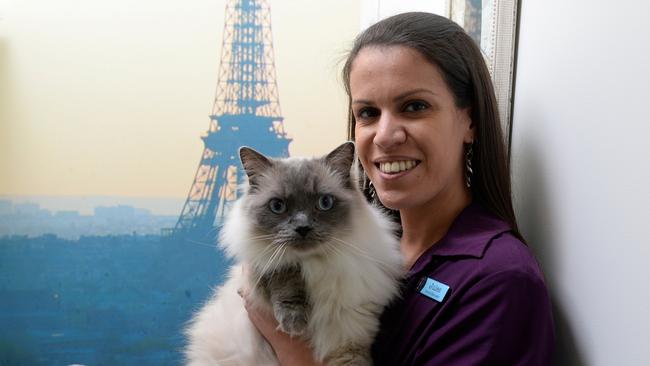
Jules dos Santos is the owner of Divine Creatures, based on the north shore.
I have always been fascinated with cats but specifically how they behave and why they do what they do. The sad thing with cat behaviour is that we have massively over complicated what a cat should be and when we just know they are doing cat things, we can add a deeper understanding of the species we have chosen to have in our life. I started my career in medicine as a veterinary nurse but as my career evolved I became more and more interested in cat psychology and behaviour. After starting Divine Creatures (Cat Hotel) I became even more interested and wanted to make sure that when I was caring for cats that I catered for all aspects of their welfare needs. I became qualified as a cat psychologist after becoming very involved in rescuing cats and my main priority was to stop the need to rescue cats in the first place. The most difficult case I have worked on was two clients that both had 10 year old female cats. The clients decided to live together and trying to integrate two female cats into one house is very, very difficult. The process usually takes four to eight weeks but in this case the process took eight months. It was only because of client dedication and listening to the advice given that we managed to get the two cats to cohabit together. The job involved coaching, giving advice, writing up plans for the client, continuous updates and changes. The client would send videos and I would coach them on the certain body language and the certain queues a cat could give. This in turn allowed me to advise the client on when to intervene and not intervene. Too much human intervention can cause more of a problem, there is a fine line between too much and too little.
BEC SYMINGTON – DOG MANNERS SYDNEY
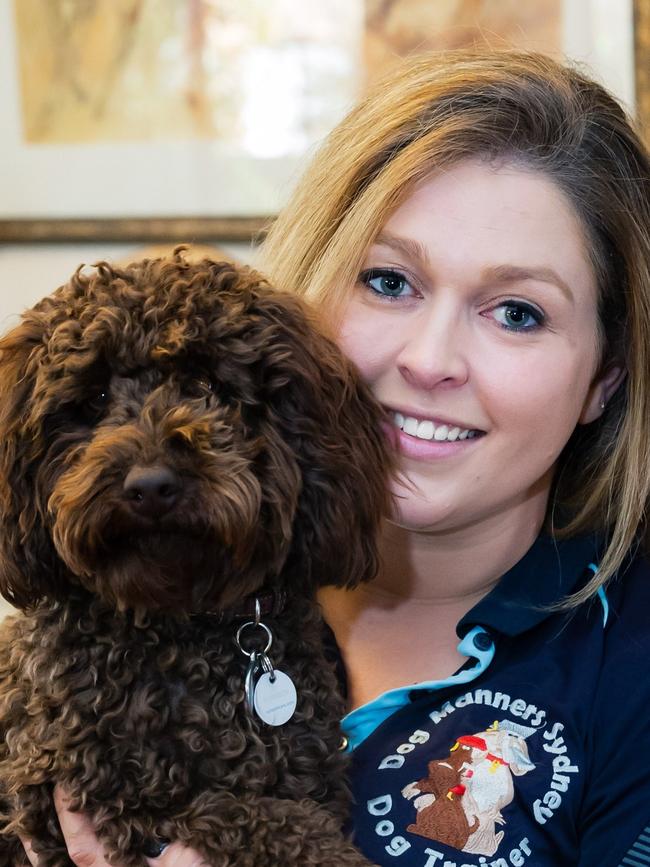
Bec Symington is a trainer at Dog Manners Sydney, based in Engadine.
I began my career as a vet nurse. At a conference I was told a shocking statistic that unwanted behaviour was the number one reason in Australia for canine euthanasia. I decided at that moment that statistic needed to change and the next week I enrolled in study to become a canine behaviourist. Seven years later and Dog Manners Sydney is a household name. The most challenging case I have had to date would be a recent case with a German Shepherd with aggression issues. The owners were ready to give up on her. Unfortunately, trainers with zero qualifications and outdated techniques are still active in our industry with no policing to manage the damage they can do. One of these trainers had been hired to help this Shepherd and made matters much worse. My job was to train the dog but also help the family understand her and what she needed. I also needed to be there for the owners, to support them as much as their dog. Together we achieved amazing results. During the last two years, there has been a drastic change in canine behaviour. We are dealing with entirely new behaviours and problems including destruction and separation anxiety. The most recent challenge is the over inundation of surrendered dogs to rescues due to people returning to work and no longer having time for their dogs or the problem behaviours they are presenting. I have been working for free as a consultant for rescues to help these dogs as well as offering out of hour’s consultations and calls to help support owners. My advice to dog owners is do not give up on them. Dogs were here for us throughout the pandemic, don’t give up on them. We are here to help.
LINDA GOLDSPINK-LORD – POSEIDON ANIMAL HEALTH
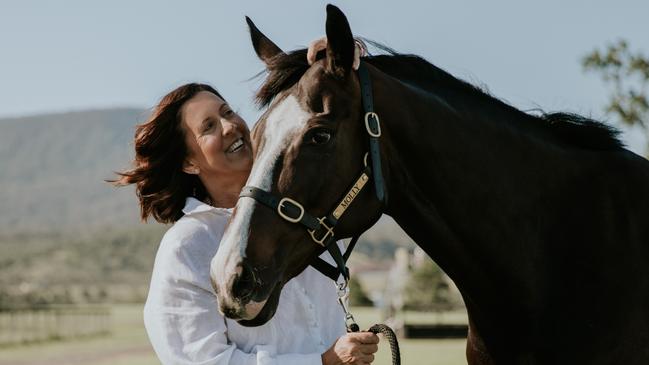
Linda Goldspink-Lord is the founder of Poseidon Equine.
Poseidon Animal Health was inspired by my own challenges as a horse owner. Five years ago, my horse Cruz was struggling with his health – he just wasn’t thriving, and no matter what we tried, nothing seemed to make a difference. I’d had my own health and personal struggles, and supporting my gut health had helped me a lot, so I started looking into the impact of gut health on horses. My eyes were opened to a whole new world of possibility – to the impact of what we feed horses on their health and behaviour, and of how supporting their gut health could improve their temperament, their overall health and their performance. With Cruz, we had nothing to lose. So working with a team of equine nutritionists and vets, we formulated a gut health supplement for horses. The change in him was dramatic, and it led to us founding Poseidon Animal Health in 2018 – which now creates gut health supplements for horses and dogs. There are direct links between our gut health and our brain, so it’s no surprise that animals with good gut health are less stressed and anxious. And horses with painful guts are of course going to be grumpier. If we can create wellness from within then that may reduce the chance of ongoing problems such as anxiety and skin problems that are frustrating for both the animal and their owners. A big part of what we do is around education. Gut health for animals is still an emerging field, so we host webinars and events with gut health experts, where horse owners and trainers can learn more about how to identify gut health issues, and how to feed their horses to support good gut health. We are so excited to be creating change.
MARK HICKEY – THE SYDNEY DOG TRAINER
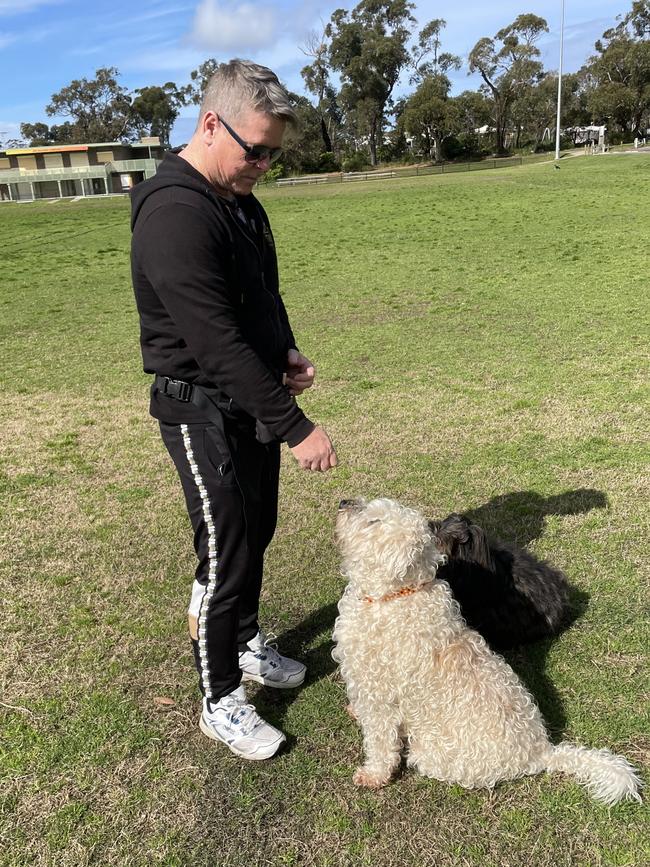
Mark is the owner and director of The Sydney Dog Trainer
Growing up in a small town in southwest Queensland, my best friend was my German Shepherd, Sasha. With limited opportunities in my hometown, I served six years in the Australian navy as a sonar operator. The navy experience provided me with a discipline and ability to work very closely with people and teams – an element of the job I enjoyed was training new crew members. Combining my love of dogs and people, I completed studies as a behavioural trainer, paving the way for me to be a nationally accredited behavioural trainer and assist people with their dogs as The Sydney Dog Trainer. During the last two years, ‘pandemic puppy’ is a phrase that has become very familiar. With the emergence of people working from home, lockdowns and limited travel, a lot of people decided it was a good time to add a pup to the family. Prior to the pandemic there was a belief that it was necessary to take puppies to group puppy training. Every day and client is a new challenge, and one of the main issues during the last two years has been solving separation anxiety issues.





